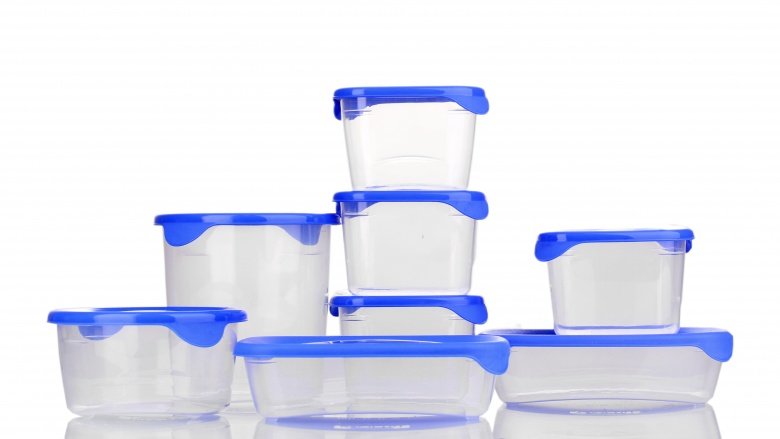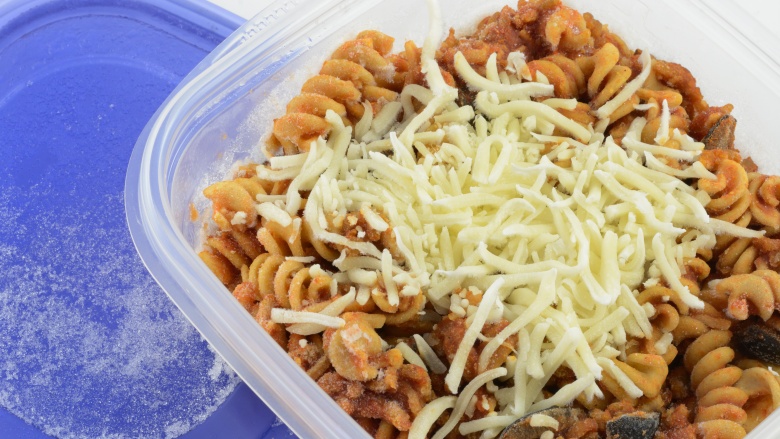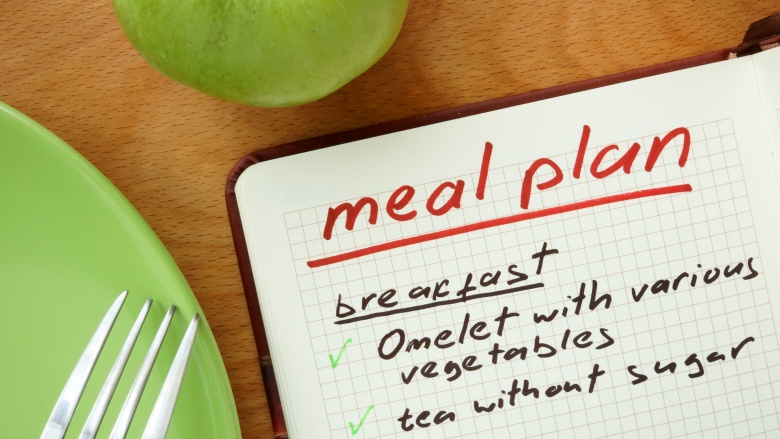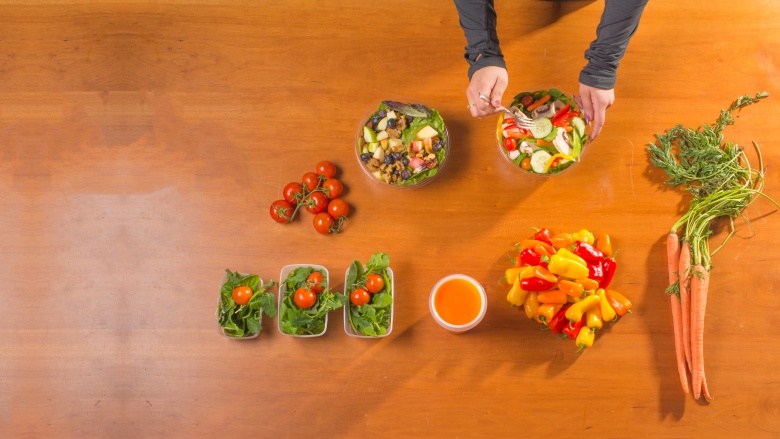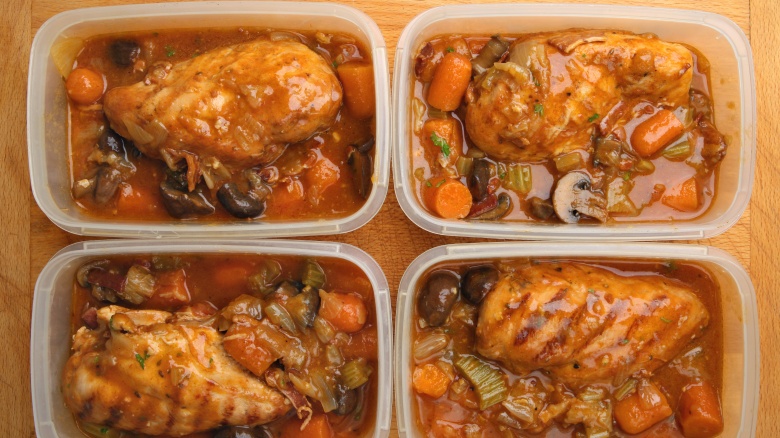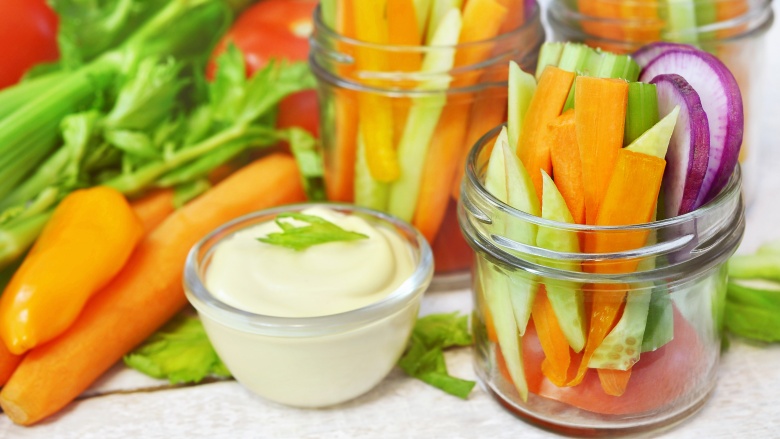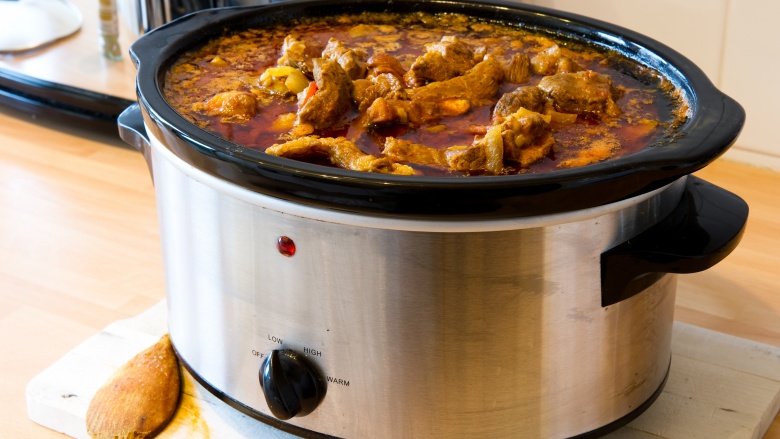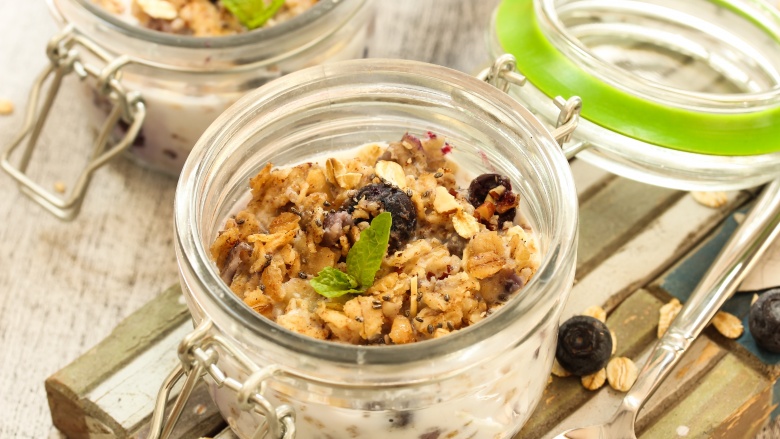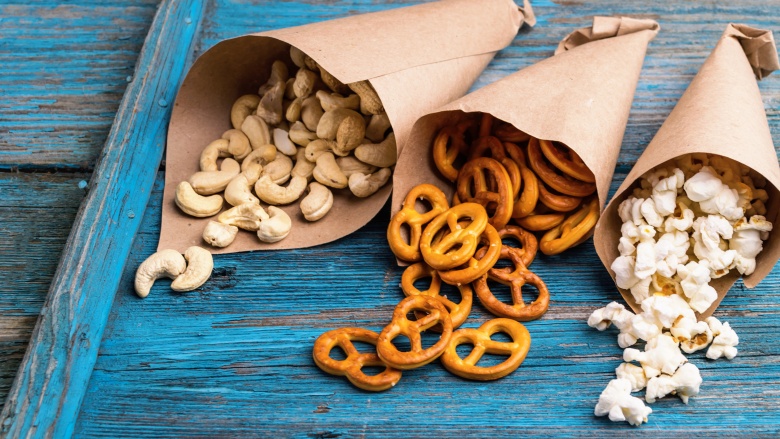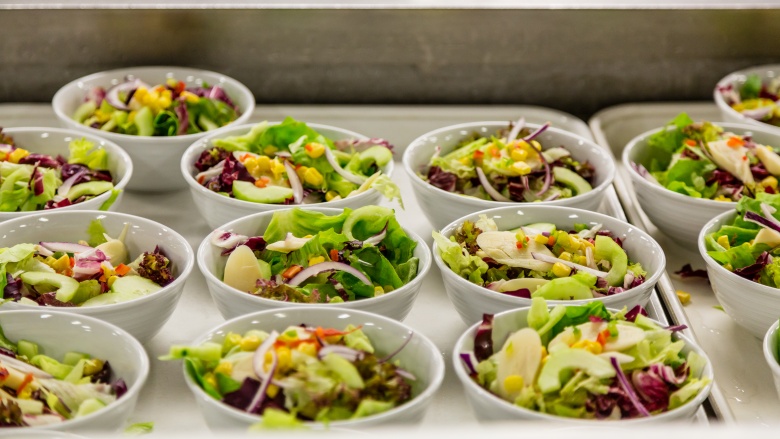10 Tips For Prepping Food For The Work Week
If you work full-time (or probably even if you don't), you know how hard it is to prepare healthy food during the week that actually tastes good. Setting aside some time on the weekend to prep your food for the week isn't just practical, it's also economical. It can help you save money when you're trying to stick to a food budget.
Plus, if you already have food prepped for lunch or dinner, you're less likely to turn to takeout or a prepackaged frozen meal because you're tired or in a hurry. Prepping food saves time, money, and calories, so let's get started.
Invest in food storage containers
You've made a big pot of turkey chili, broiled a delicious cheesy frittata, and pre-assembled a veggie lasagna. But where are you going to put all of this delicious food? It's worth investing in a big set of high-quality food storage containers and finding a space in your kitchen where you can keep all those lids and bases organized and within reach.
Pyrex is excellent for food that needs to be frozen and reheated, and it's simple and elegant enough to use for serving as well. Plastic containers shouldn't be used for tomato-based sauces (they'll stain) or for reheating food, but they can be useful for separating out serving sizes worth of snacks and they're great for salads. For prepping lunches, plastic or stainless steel containers can be useful because they're lightweight and easy to transport.
Cook once, eat twice
Doubling recipes will save you a lot of cooking time, and if you're worried you'll end up eating the exact same meals every day for a week, then remember: your freezer is your friend. Make a big pot of soup and freeze it in pre-portioned containers so it's easy to grab and reheat in the microwave at work.
If you're already going to the trouble of making macaroni and cheese, why not prepare and freeze an entire second pan of delicious cheesy pasta for another day's dinner? Have chicken tortilla soup from Sunday's prep as dinner on Monday, then the macaroni and cheese you froze last week on Tuesday, puree some roasted veggies from Sunday into a soup for Wednesday, and another serving of chicken tortilla soup makes dinner for Thursday. Make something fresh on Friday, and with only one weeknight of cooking, you had a different dinner almost every night of the week.
Make a calendar and stick to it
One of the main reasons people start meal planning is to avoid wasting food. According to a report from the National Resources Defense Fund, the average American family of four throws away about $2,275 annually in food. Planning meals in advance is a great way to make sure you actually eat the food you buy.
Sit down with a notebook or online calendar to plot out what you want to eat that week for breakfast, lunch, dinner, and snacks. Apps like Mealboard and Meal Planner Pro make planning even simpler. Mark which meals you'll be eating out and don't need to buy food for, and think about when you'll want to eat leftovers for lunch. Then go meal-by-meal to create a shopping list that includes everything you'll need for that week's meals.
Play it fast and loose
Some people love making a calendar of meals for the week, creating a grocery shopping list, and following it strictly. Other people find that model stifling, but food prep can work just as well for you if you crave flexibility.
You don't have to plan out exactly what you're going to eat each day, but it's a good idea to come up with a few meals you know you want to eat that week, and then you can choose from them as you go. You can also prep veggies, grains, and proteins in advance and put them together in different ways during the week. That way you won't be locked in to eating steak and potatoes on a night you're more in the mood for a big salad.
It doesn't have to ruin your weekend
It may seem like prepping food for the week is going to take over your precious free time on the weekend, but it doesn't have to be that way. First of all, food prep doesn't need to take that much time. You'll be surprised by how much you can get done if you set aside just one hour on Sunday for prep. A lot of prep time is just being home while your stove and oven do the work. You can binge watch Netflix while vegetables roast, rice simmers, and a casserole bakes.
And if you'd rather be brunching than prepping, there's no rule that says you have to do your food prep on Sunday. If another day of the week makes more sense with your schedule, then go for it.
Prep your proteins
Prepping proteins is a great way to save money, and you'll have plenty of options for how to eat them during the week.
Cook a pot roast or make pulled pork in the slow cooker to add to soups and sandwiches, or brown hamburger or ground turkey for casseroles and sauces through the week. Roast a whole chicken on Sunday, and you've got easy fixings for sandwiches, enchiladas, tacos, stew, or soup later in the week. The same goes for roasted tofu if you're a vegetarian or simply trying to eat less meat. Hard boil a bunch of eggs on Sunday, and you can easily eat them as an on-the-go snack, slice them onto sandwiches or salads, or make egg salad. Cooking a pot of beans on Sunday is another great way to save money, and as a bonus, it will make your house smell amazing.
Dice, slice, and roast your veggies
Do you ever dread opening your vegetable drawer during the week because you're worried all the beautiful produce you bought on Sunday is already brown or moldy? Once you start prepping, you'll never have that problem again.
Wash and slice any veggies you want to eat raw during the week: carrots, celery, and peppers hold up well, but you may want to hold off on cutting cucumber until a day before you eat it. Divide them into small plastic containers to grab and go, or keep them all in a big container to use in salads. Roast the rest of your veggies, and you'll have a great base for lots of different lunches and dinners. Use roasted vegetables in Buddha bowls, puree them into soups, turn them into frittatas or omelettes, or simply eat them as a snack or side. Vegetables that roast well and will hold up for several days include sweet potatoes, broccoli, cauliflower, Brussels sprouts, asparagus, mushrooms, bell peppers, and more.
Let your slow cooker do the work
Slow cookers are a godsend for weeknight dinners. But if the thought of handling raw meat before you've even had your coffee makes you queasy, try this trick: assemble all the ingredients you need for a slow cooker recipe in a freezer-safe gallon plastic bag. Label it and keep the bag frozen until the night before you want to use it. Thaw the bag in the fridge overnight, and in the morning, simply dump it into your slow cooker. Turn it on, and when you get home, enjoy beef chili, barbecue chicken thighs, or baked ziti while you lounge and congratulate yourself on planning ahead.
Prep your breakfasts
Food prep isn't just for lunches and dinners! There are plenty of breakfasts that can be made in advance, and let's be honest: you probably have just as little time to make a healthy breakfast every day as you do to make lunch and dinner. Cook steel cut oats in your slow cooker, then portion into containers for the week and top with fruit, nuts, and any sweetener you like. Or make individual mason jars of overnight oats, and skip the slow cooker altogether. Make a batch of breakfast tacos with sausage, eggs, or beans (or all three!) to store in the freezer, then microwave before running out the door.
Cut up honeydew, cantaloupe, or watermelon and store in a big container in the fridge all week. If you have a bowl of pre-washed apples, berries, or grapes on the counter, you're that much more likely to eat fruit in the morning — and yes, simply washing the fruit in advance counts as food prep, too!
Prep your snacks and save some cash
Instead of buying individual-sized snacks, buy chips, crackers, and cookies in bulk, then separate them into serving sizes. It's cheaper, better for the environment if you use reusable containers, and you'll be less likely to overeat if you can see what a serving size is. You'll also be more likely to grab snacks for when you're on the go, which will save you money when you're hungry and not at home.
It just makes things easier
A small amount of time prepping your food at the beginning of the week can save you a lot of time during your hectic workweek. You can easily save money and calories, and you'll quickly discover which make-ahead foods you love. So get prepping and have fun!

